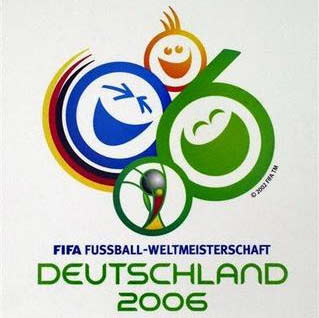
There is the perception in the marketing industry (also seeming to affect our client brands) that event sponsorship is only a worthwhile or prestigious marketing tool when the event concerned is high profile. Indeed, “high profile” appears to be the only concern for those seeking to sponsor events.
Furthermore, this desire for the high profile event seems, to a great degree, to bypass considerations of relevance to client brand and, even more importantly, consumer perceptions.
In fact, we’d even go so far as to say that sponsorship these days is far more about demonstrating to the general public just how much money your brand has to spend on advertising than it is about connecting that brand with positive endeavours or worthy events. A tad reactionary perhaps, but we think there’s a point to be made.
Take for instance the 2006 World Cup, where public health doctors writing in The Lancet questioned the inclusion of companies such as Budweiser, Coca-Cola and McDonalds as FIFA official partners. They also noted that McDonalds’ position as an FA and London 2012 sponsor was “highly questionable” given the “significance of obesity as a health problem”.
Then there’s the example of the “Today League” where, in the 1986-87 season, the newspaper Today sponsored the football league. Perhaps unsurprisingly rival newspapers refused to refer to the league by its official title and Today did not renew their deal having achieved nothing but bad publicity.
Two different problems are highlighted in these examples. In the first a corporation (or corporations) seeking to redress the balance in relation to its perception as an unhealthy influence pays an enormous amount of money to sponsor a major sporting event…and then reaps publicity that states not only that it is attempting to buy its way into the public health-consciousness but that also churns up the views it was attempting to dispel in the first place.
In the second case a company attempting to make itself into a higher profile outfit pays an enormous amount of money to sponsor a competition whose portrayal is directly influenced by that companies rivals, who promptly do everything in their power to rubbish the deal.
In both cases these companies attempted to use massive amounts of money to both raise their profile and dispel doubts about their products. And, in both cases, this attempt backfired spectacularly…and wasted, as we’ve noted, an enormous amount of money.
So, as you can see, simply chucking your brand’s money at high-profile events or competitions can be a disastrous idea, and this, in turn, rubbishes the impression noted in the first paragraph.
Now, we’d suggest that event sponsorship is a good idea – but only after some questions have been asked of your brand.
First and foremost you have to ask what perception your brand wants consumers to have of it as a result of its involvement. In the case of McDonalds this question appears to have been missed and a simple assumption was made that the association with sporting events alone would change the public perception of the company. As it turned out this was not the case.
Secondly it’s important to ask where your client brand would experience the most benefit in sponsorship. Would it, for instance, be in a national competition where the widespread publicity alone would achieve your brand’s aims, or would it perhaps be in a series of low-profile events that draw much appreciation and support at a community or grass roots level? Depending on your aims, sponsoring the construction of a series of new bus shelters in a town suffering a chronic lack of them may have more impact for your brand than having your name up in lights as an FA Cup sponsor.
When these two basic questions have been asked and answered it’s time to pick your target. This, however, is not the end of the process – there’s more thinking to be done! It’s at this point that you and your brand managers should be meeting to decide what form your sponsorship should be taking.
Is it, for instance, more important to your brand to provide financial backing or material backing? Financial backing may, once again, allow more prominent use of your brand name in relation to the event, but material back – in the form of prizes, equipment and so on may have a more lasting effect.
There is, of course the possibility that you may decide there’s a gap in the market in which to stage your own event and, if that is the case, careful planning will dictate whether you go it alone and set all the parameters yourself or whether you involve other brands in your efforts.
All these approaches have been used by Red Bull over the past few years (and who we’re going to hold up as a magnificent example of a company really thinking about their sponsorship options). They have, since 2000, sponsored football teams, car racing teams, moved into promoting a global air race and, famously, created their own touring flugtag event (appearing in more and more crazy forms in many, many countries). All of these events, in some way, bolster the brand’s image as fun, adrenalin-fuelled and energetic as well as fitting in with the globally recognised “Red Bull Gives You Wings” slogan. This, in turn, has certainly had a lot to do with their tripling circulation from 1 billion cans per annum sold to 3 billion per annum between 2000 and 2006.
Whilst your brand may not have the spending power Red Bull have developed you have, with careful application, every chance of replicating some of their success…all it takes is a little thought and not, as people seem to think, a lot of money!
